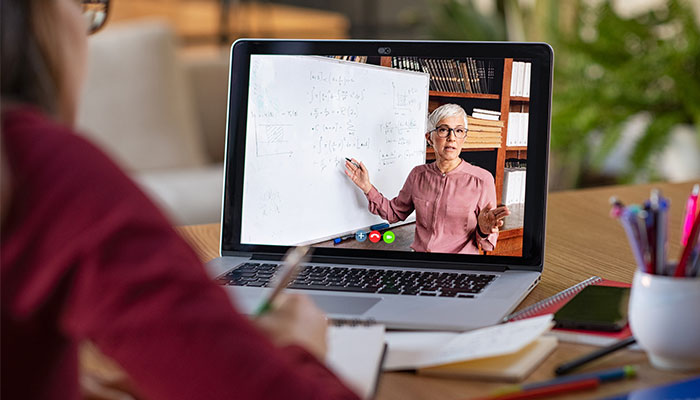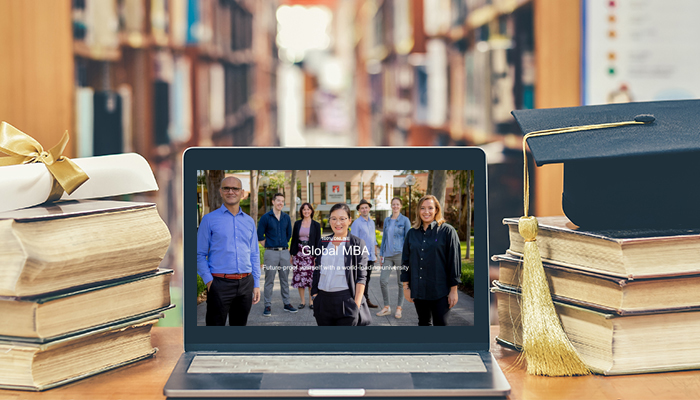Long before coronavirus turned traditional learning methods upside down, new teaching techniques were already raising student confidence and social skills, laying the groundwork for improved employability and career progression.

According to Dr Meena Chavan from Macquarie Business School’s Department of Management, for Generation Z – those roughly born between 1997 and 2012 – many of the old-style learning techniques experienced by previous generations are ineffective.
“This generation of young people are overstimulated and easily distracted,” she says. “They want instant gratification and prefer hands-on, tech-enabled experiences where they can work at their own pace. They thrive on interactive work rather than rote learning.”
Chavan’s research into the preferred learning styles of today’s undergraduates – conducted prior to the outbreak of COVID-19 – used focus groups and interviews to gauge the effectiveness of experiential and action learning theories among a group of students of business ethics. The results were compelling.
Experiential learning might involve hands-on activities or face-to-face interactions, but is also highly effective using online learning scenarios.
“We observed increased student motivation and engagement with learning, improved teamwork, and a greater understanding of different cultures and learning styles.”
At a time when online learning has become the norm, rather than the exception, Chavan’s research is particularly pertinent. “We also identified that students gained social benefits, improved engagement and language skills, improved confidence in gaining employability, networking opportunities and satisfaction with university life.”
Experiential learning theory originated in the early 1970s, but has come into its own in recent years because of technological innovation and is now widespread in Australian universities and around the world. In essence, it involves ‘learning through doing’ where students directly engage in an activity first-hand and then reflect and learn from their experiences.
Experiential learning might involve hands-on activities or face-to-face interactions, but is also highly effective using online learning scenarios.
Tim Tams plus technology
However, Chavan believes it’s now time to take experiential learning to a new level via technologies like virtual and augmented reality.

“Virtual reality can provide an immersive learning experience by transporting students to a new environment without them ever leaving the classroom. And augmented reality is good for teaching complex theories in subjects like economics, statistics and medicine.”
She also sees experiential learning via gamification as a significant way of engaging students. “Gamification gives students a hands-on trial and error experience,” she says, “and critically, it helps employers too by producing engaged, motivated, work-ready graduates.”
Chavan uses gamification and experiential activities in her delivery of the Master of International Business program where the full program is offered online.
We hired an Australian actress to portray the owner of a pie manufacturing company in a series of 10 videos.
These have included a simulation where a box of Tim Tams was moved through Australia’s end-to-end export process, culminating in it arriving at the overseas home of one of the participating international students, and a currency trading game in which students received a hypothetical $US5 million with five weeks to trade their capital and grow their balance.
“In another example we hired an Australian actress to portray the owner of a pie manufacturing company in a series of 10 videos. Students had to conduct research and assume the role of consultants to advise her as their client on the viability of her plan to expand into Indonesia.”
Speedy transition to work
Chavan is passionate about further developing this interactive learning environment. As well as suiting the students, it helps meet employer expectations of graduates as independent thinkers. By learning from real-life situations they become work-ready and able to make a speedy transition from inexperienced student to productive professional.
“It’s good for students, good for industry,” she says. “But things need to go further. It’s time to develop a new model to bridge the gap between the skills students have and what industry needs by bringing them together on a common learning platform for work experience and internships.”
Chavan is progressing towards this goal at Macquarie by establishing a Community of Practice for her Master of International Business alumni, many of whom are now senior executives in global multinationals. They attend her undergraduate classes via Skype to explain their industry and their role, and what working for that company as an intern would entail.
“It’s critical that universities and academics understand Generation Z and the environment they grew up in, and reflect this in technology-led curriculum design for the 21st century,” says Chavan.
“Things have moved on a very long way since the Baby Boomer generation was at university.”
Dr Meena Chavan is a Senior Lecturer, Program Director Master of International Business from the Department of Management at Macquarie Business School



